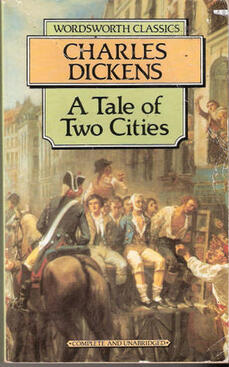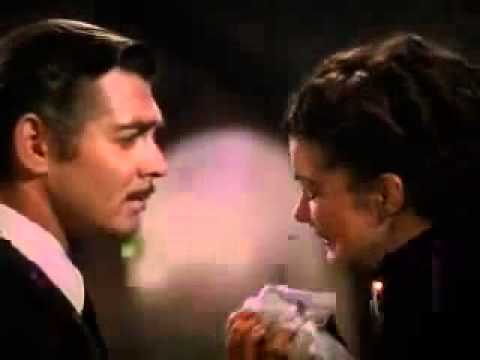
Yet to this day I can recite the last line of this beloved novel:
“It is a far, far better thing that I do, than I have ever done; it is a far, far better rest that I go to than I have ever known.”
The speaker, of course, is Sydney Carton. He is headed for the guillotine, sacrificing himself to accept the punishment meant for the aristocrat Charles Darnay.
I don’t know about you, but I see in this story a reflection, albeit imperfect, of Christ’s death on the cross as payment for the sins of the world, so that “whoever believes in Him should not perish but have eternal life” (John 3:15).
But apparently I’m wrong about that, because the Wikipedia entry on this novel insists on another meaning entirely: “The very last thoughts attributed to Carton, in their poetic use of repetition, register this faith as a calm and soothing certainty: that both the name of Sydney Carton and of France will be reborn into glory and made ‘illustrious.’"
There’s no mention of Jesus Christ in this somewhat lengthy synopsis. No mention of the biblical account of His sacrifice, which seemed to me so clearly to have inspired Dickens. And just one mention of Heaven, in its quotation of the novel’s opening paragraph.
So color my face red: A Tale of Two Cities must be nothing more than a compelling saga about those greedy aristocrats and the noble (if murderous) revolutionaries and a suicidal lawyer who was trying to make a name for himself with his Top Secret sacrifice.
Just one problem with that assessment: Charles Dickens was a devoted Christian and student of the New Testament. Consider just some of what he wrote on the subject:
- “The New Testament is the very best book that ever was or ever will be known in the world.”
- “Remember!--It is Christianity to do good always--even to those who do evil to us. It is Christianity to love our neighbours as ourself, and to do to all men as we would have them do to us. It is Christianity to be gentle, merciful and forgiving, and to keep those qualities quiet in our own hearts, and never make a boast of them or of our prayers or of our love of God, but always to show that we love Him by humbly trying to do right in everything."
- “I have always striven in my writings to express veneration for the life and lessons of Our Saviour.”
- “I commit my soul to the mercy of God through our Lord and Saviour Jesus Christ, and I exhort my dear children humbly to try to guide themselves by the teaching of the New Testament in its broad spirit, and to put no faith in any man’s narrow construction of its letter here or there.”
What's more, Dickens’ last published work was a gospel-retelling entitled The Life of our Lord. Written for his children, it was an instant best-seller when it was finally published in 1934, after the death of his last child.
Some observers charge that Dickens believed in a works-based plan of salvation. If that’s true – and it may be so – how curious that he painted, in Sydney Carton, such an astounding picture of substitutionary sacrifice in the satisfaction of a death penalty. I certainly have read only an infinitesimal fraction of the world’s books, so I’m no expert; but from what I have read, I don’t know of any novelist who more clearly captured Christ’s atoning sacrifice.
I’m guessing there must be much more biblical imagery in A Tale of Two Cities – imagery that I would have missed when I read it, having been well on my way to full-blown atheism, and having never paid a bit of attention to my weekly Sunday School lessons. It’s high time I dug out my old copy of this outstanding novel and read it through the lens of the Bible.
An update: Last week, I finally caught a movie version of A Tale of Two Cities – the 1935 edition produced by David O. Selznick of Gone with the Wind fame, starring Ronald Colman as Sydney Carton.
The ending was, not surprisingly, absolutely riveting. As Carton headed up to the guillotine at the film’s end and the camera panned to the heavens, he spoke those heart-wrenching last words, “It is a far, far better thing that I do than I have ever done …”
But even more gripping was what followed: A title card reading, “I am the resurrection and the life: he that believeth in me, though he were dead, yet shall he live. –John 11:25”
Dickens himself quoted this verse four times in his novel. I wonder how many of the more recent movie versions included it? I’m guessing none, but perhaps I’m wrong – perhaps another movie-maker or two felt compelled to acknowledge the Christian message of this unforgettable story; it’s hardly subtle, and overlooking it would be an obvious demonstration of willful ignorance.





 RSS Feed
RSS Feed